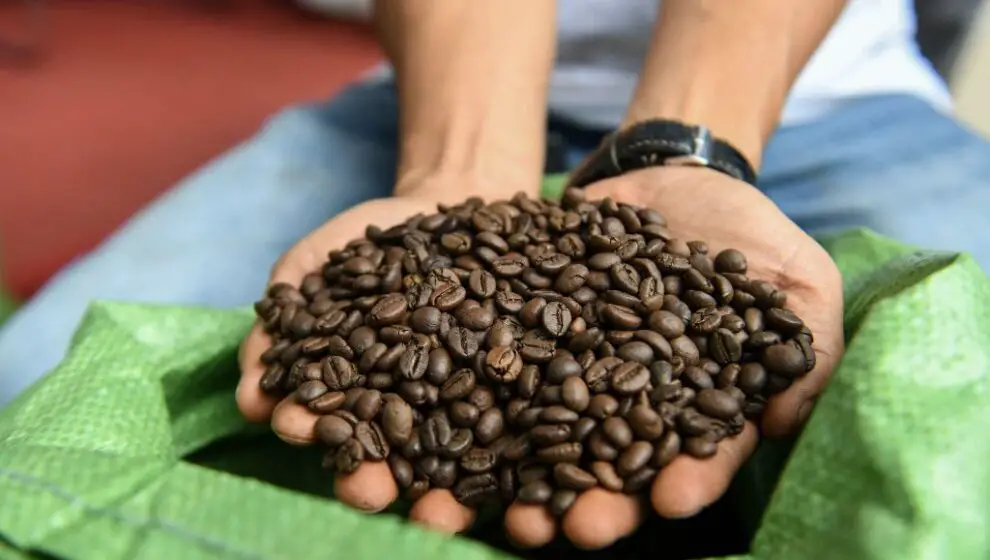Hundreds of small-batch coffee roasters and brands have found loyal customers through the internet—creating brands around social activism and openings in the small business market.
Key Details
- April 20 is National Cold Brew Day in the U.S., and many companies like Dunkin are celebrating with special deals and promotions.
- Coffee is a $25-billion dollar industry in the U.S. due to the drink being the most popular beverage in the world.
- Coffee is a serious business, and major corporations like Starbucks work to maintain it—as seen with their ongoing efforts to push against unionization efforts at 360 national locations.
- While large companies struggle to maintain supremacy and sell NFTs on the side, smaller private coffee companies have risen to take a sizable market share by appealing to social causes and donating to like-minded charitable groups.
Why It’s Important
Distinguishing a brand can make the difference between success and failure in a tight market, and this is particularly true for small businesses. The largest names in the U.S. coffee market are Eight O’Clock Coffee Company, Starbucks Corporation, The J.M. Smucker Company, and Keurig Green Mountain Inc. The most popular coffee brands sold at retail stores are Folgers, Starbucks, Maxwell House, and Dunkin, according to Statista.
But as the micro-brew IPA beer market shows, small brands can be successful by selling small volumes of products to a specific local community or market. Private-label coffee is a billion-dollar industry in the U.S., and hundreds of brands are competing for a cut of that industry.
Backing Up A Bit
Small-batch coffee companies have set themselves apart by attaching themselves to political causes or social issues. The most successful of these is Black Rifle Coffee, which was founded in 2014 and which drew attention for its pro-second amendment and pro-military stances and charitable donations. It grew by selling online orders through a direct-to-customer subscription service, expanding into a publicly traded company in February 2022—with an IPO valuation of $1.7 billion.
Dozens of small coffee companies have risen in popularity in the years since. Mystic Monk Coffee and Catholic Coffee emerged as specifically Christian brands appealing to Catholic coffee drinkers—the former being roasted by a group of Carmelite Monks in Wyoming to support their monastery. Blackout Coffee has emerged as another veteran-owned brand. Coffee Brand Coffee has been sold specifically on its lack of political message, being created by YouTuber Jeremy Hambly as a coffee brand for people sick of political messaging.
Coffees run by companies that support many points of view are succeeding, like Counter Culture Coffee and Trade Coffee which both emphasize the importance of social awareness, environmentalism, and sustainability in sales and charitable efforts. Queer Wave Coffee aggressively argues in favor of “decolonizing” coffee by sourcing from indigenous peoples in Honduras. Awareness Coffee donates proceeds to LGBT groups and health care organizations.
Being Driven By A Mission
Having a clear message draws members of a community or political movement to support products like coffee or other small business goods. Anton Krecic is the founder of Northern Virginia-based Seven Weeks Coffee, and he has seen notable success in appealing his brand to pro-life activists.
“I have always been passionate about the pro-life movement and entrepreneurship, so this business was a perfect alignment of passion and my work experience—to create value-based products that advocate for my beliefs. Coffee is a great product to tell a story and share a mission,” says Krecic.
Krecic started Seven Weeks Coffee in November 2021 as a means to do fundraising and successfully sold $8,000 worth of coffee in his first month. It became a full-time job in May 2022, with the company having drawn promotion from large media companies like The Daily Caller, LifeSite, and The National Catholic Register. He says the company expects to donate $100,000, or 10% of its proceeds, to women’s centers this month.
He says that his customers support his business for the values it supports, but maintains his customer base by making sure to sell a product that people want to return to regularly. “Having a Pro-life focus has catapulted our business and made it successful. It gives a unique value-add to customers. It distinguishes us from generic coffee in the e-commerce space.”
A Local Approach
Tablow Roasting Co. exemplifies a different approach to specialty coffee sales. It is not a political or religious brand, and it has grown instead by appealing to a gap in the roasting coffee market. Matthew Moore tells Leaders Media that he founded the company because there was no serious competition for coffee roasting in Central Kentucky, and he wanted to create that business.
“I operate in a space without a lot of exposure. Unless you’re in California, New York, or Texas, there’s hardly anyone that deals in specialty coffee in alot of regions. Being local and community-minded with a global reach through online sales sets us apart. We’ve shipped to 49 states—except Delaware—and 23 countries,” says Moore.
“We’re a company that loves to work locally and sell locally to the Kentucky community, but we’re also national and love our community at large. We love seeing orders come in from overseas as much as down the street.”
He founded the company in September 2020 as a small business in Harrodsburg, roasting his own coffee beans and building working relationships with local restaurants, store chains, gift shops, and airports to sell his products. He subsequently broke into online sales by approaching several YouTube channels—including The Lore Lodge and The History Of Everything—to make profit-share deals with them.
“With a 50-50 profit split, it does not draw heavy profits, but I benefit from increased exposure and reach while my total sales numbers have increased. I enjoy working with these channels, so helping them is a win-win,” he says.
